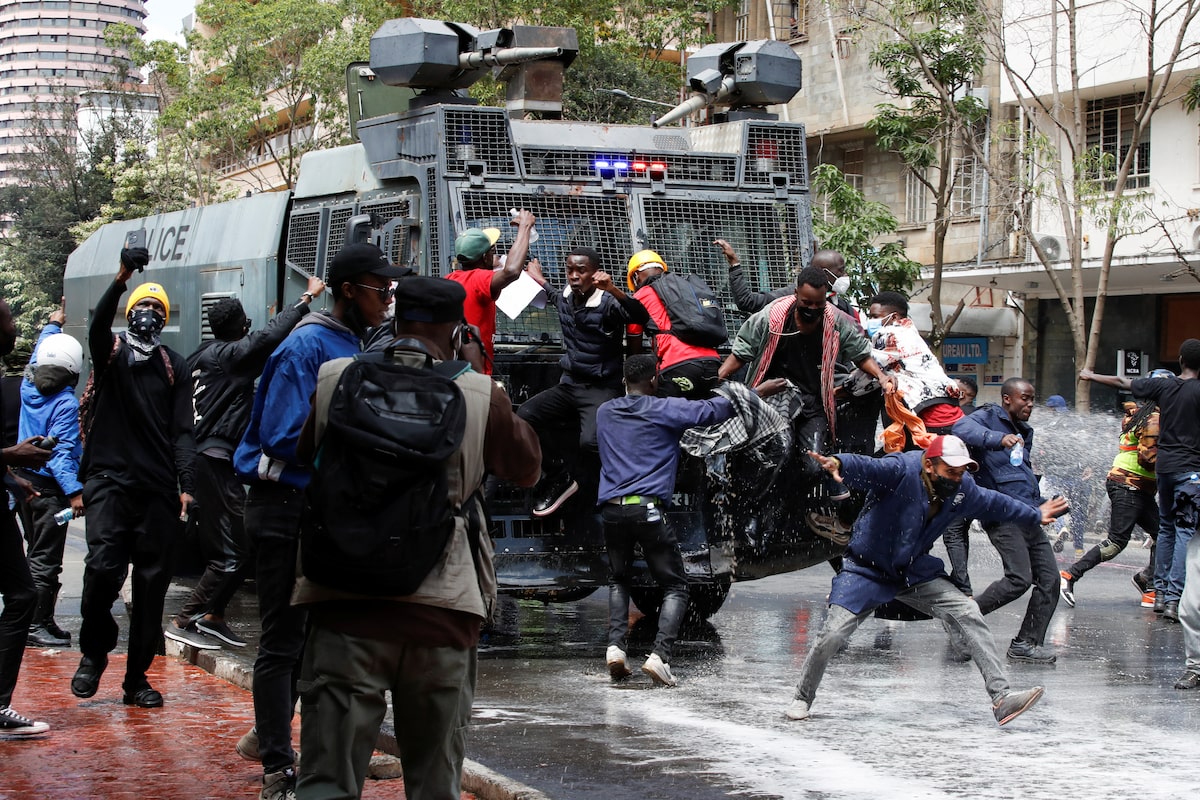MPs reject proposed anti-demos Bill, says it risks violating constitutional rights

Committee chairperson Gabriel Tongoyo cautioned that any legislation on demonstrations must balance the right to protest, as guaranteed under Article 37 of the Constitution, with limitations under Article 24.
Members of Parliament have dismissed a proposed Bill that seeks to impose stricter regulations on demonstrations, arguing that it threatens constitutional rights.
The National Assembly Committee on Administration and Security reviewed the Assembly and Demonstration Bill, 2024, and found it redundant, as most of its provisions are already captured in the Public Order Act.
More To Read
- LSK faults CS Murkomen over defiance of High Court ruling on masked police officers during protests
- Murkomen warns vandalism, arson and looting now considered terrorism in Kenya
- LSK rejects Passaris’ protest Bill, warns MPs against curtailing freedoms
- Government warns Saba Saba protests could cripple Kenya’s economy, scare off investors
- Three activists linked to June 25 protests freed on bail as police probe arson, looting
- No-protest zone: New Bill seeks to block demonstrations near protected areas, critical infrastructure
Committee chairperson Gabriel Tongoyo cautioned that any legislation on demonstrations must balance the right to protest, as guaranteed under Article 37 of the Constitution, with limitations under Article 24.
Article 37 allows peaceful and unarmed demonstrations, while Article 24 stipulates that fundamental rights can only be limited through reasonable and justifiable laws in a democratic society.
The committee's legal team highlighted that the Bill introduces minimal new provisions, with the only unique addition being the requirement for demonstrators to appoint field marshals to manage crowds.
The committee suggested that such changes could be achieved through amendments to the Public Order Act rather than drafting a separate Bill.
Mbeere North MP Geoffrey Ruku, the Bill's sponsor, was scheduled to defend his proposal but failed to appear, citing commitments outside Nairobi.
Tongoyo stated the committee would arrange another meeting to convey their recommendation to Ruku to pursue amendments instead of a standalone Bill.
"We need to inform the member to introduce this as an amendment. We will wait for him and share the committee's views," Tongoyo said.
Nyakach MP Aduma Owuor echoed the committee's sentiments, stating that the proposed changes would be challenging to implement and were largely redundant.
"Some of these provisions are already in the Public Order Act," he said.
The Bill sought to grant police extensive powers to restrict demonstrations, including preventing participants from deviating from specified routes or entering certain locations. Violators would face penalties of up to a year in jail or fines.
It also introduced a complex application process requiring organisers to notify police at least three days in advance, providing details such as full names and physical addresses.
Critics argue that the legislation would undermine constitutional rights by granting the state excessive authority to suppress peaceful protests.
Top Stories Today
















































